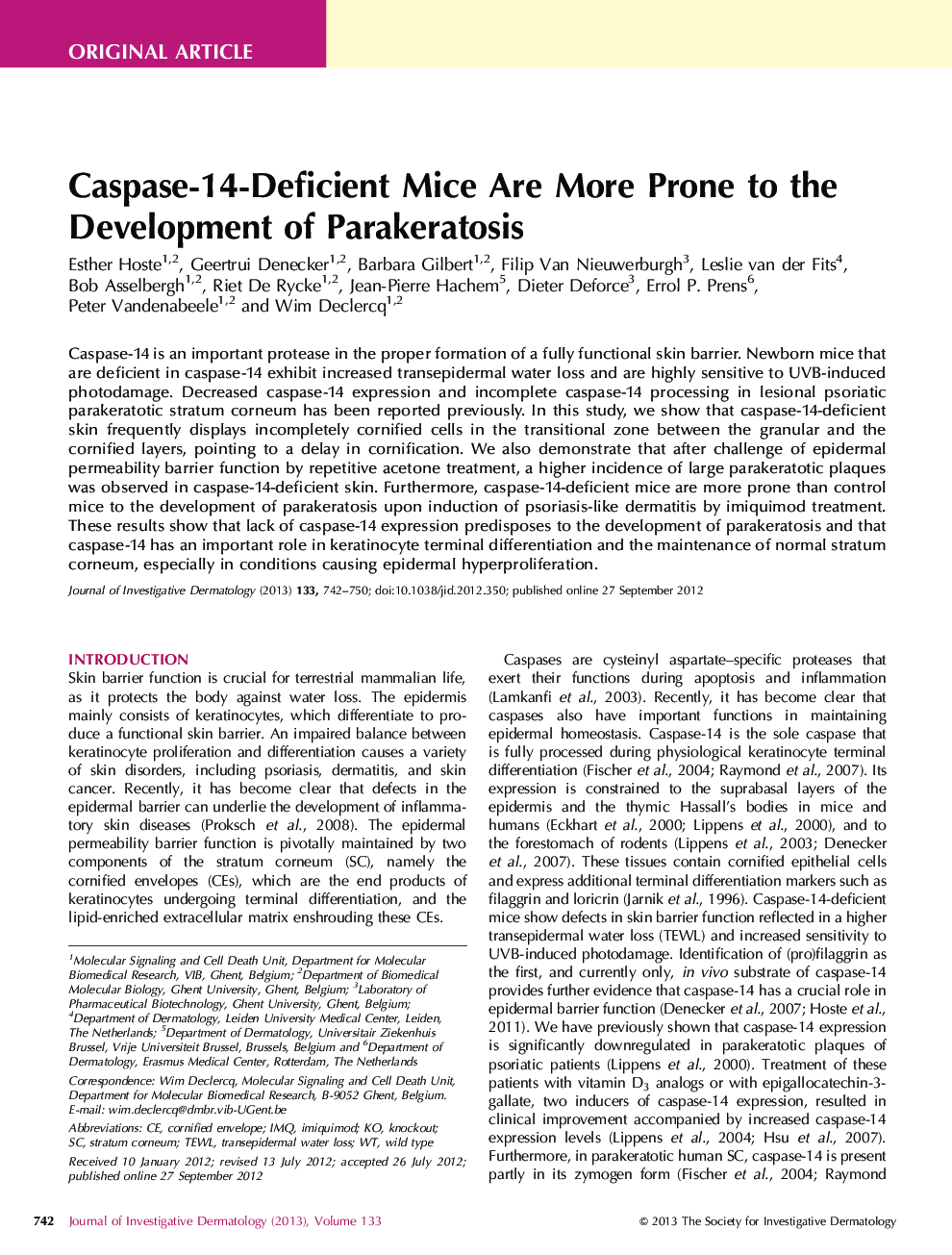| Article ID | Journal | Published Year | Pages | File Type |
|---|---|---|---|---|
| 6076800 | Journal of Investigative Dermatology | 2013 | 9 Pages |
Abstract
Caspase-14 is an important protease in the proper formation of a fully functional skin barrier. Newborn mice that are deficient in caspase-14 exhibit increased transepidermal water loss and are highly sensitive to UVB-induced photodamage. Decreased caspase-14 expression and incomplete caspase-14 processing in lesional psoriatic parakeratotic stratum corneum has been reported previously. In this study, we show that caspase-14-deficient skin frequently displays incompletely cornified cells in the transitional zone between the granular and the cornified layers, pointing to a delay in cornification. We also demonstrate that after challenge of epidermal permeability barrier function by repetitive acetone treatment, a higher incidence of large parakeratotic plaques was observed in caspase-14-deficient skin. Furthermore, caspase-14-deficient mice are more prone than control mice to the development of parakeratosis upon induction of psoriasis-like dermatitis by imiquimod treatment. These results show that lack of caspase-14 expression predisposes to the development of parakeratosis and that caspase-14 has an important role in keratinocyte terminal differentiation and the maintenance of normal stratum corneum, especially in conditions causing epidermal hyperproliferation.
Related Topics
Health Sciences
Medicine and Dentistry
Dermatology
Authors
Esther Hoste, Geertrui Denecker, Barbara Gilbert, Filip Van Nieuwerburgh, Leslie van der Fits, Bob Asselbergh, Riet De Rycke, Jean-Pierre Hachem, Dieter Deforce, Errol P. Prens, Peter Vandenabeele, Wim Declercq,
